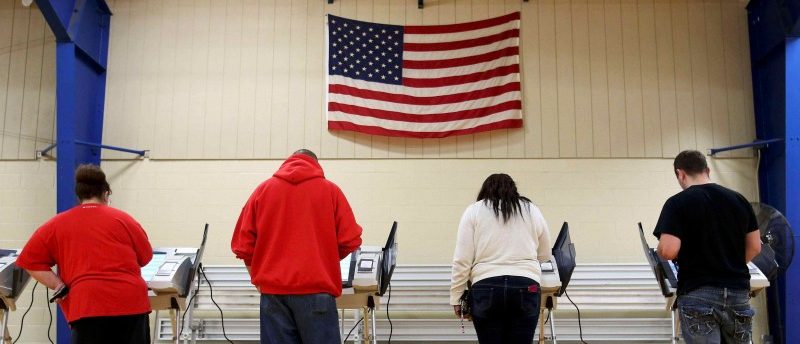
If someone commissioned a new poll on the approval ratings of pollsters, chances are they would score lower than Congress does on surveys of their popularity.
But much of their tarnished reputation, especially for their failure to predict Donald Trump’s White House entrance, and Britain’s exit from the EU, is undeserved.
A poll, like a dream, is subject to interpretation and misinterpretation.
If you looked closely at the Real Clear Politics average poll a day before the election in November, you would have found that every must-win state for both candidates fell well within the industry standard’s 3-percent margin of error. That meant that going into Election Day, the race was still up for grabs. If so, why did the overwhelming sentiment still favor Hillary?
Blame confirmation — or cognitive — bias.
“Humans don’t like to change their opinions,” noted Jessica Stillman, a contributor to Inc.com. “Rethinking our beliefs once they’ve formed is hard and uncomfortable. It’s much easier to simply ignore information that calls our most cherished ideas into question than it is to engage with threatening new information.”
The pundits believed that Hillary Clinton would win, and interpreted the data to make it correspond to their belief.
With one major exception.
“I never thought Clinton was leading,” says John McLaughlin, CEO and partner at McLaughlin & Associates, a political strategist and pollster on a personal winning streak, having represented both the winning Trump team and Binyamin Netanyahu’s victorious March 2015 re-election campaign. “The pollsters were wedded to an old 2012 model. They thought the Obama coalition was perpetual. It wasn’t.”
McLaughlin shared that thought during interviews before and after the presidential election. He predicted Trump would shock the out-of-touch elites by galvanizing Rust Belt, Sun Belt and Heartland voters and that the pundits were underestimating the degree of discontent that Trump was tapping. Many of them failed to consider that when polling, there will always be a certain percentage of people who aren’t being candid with the pollster, or are too shy to express an opinion.
Considering that most pollsters also missed the boat on Brexit, they are under pressure to restore their credibility, said Stephen Fisher, a political sociologist at the University of Oxford, in an interview recently with Nature – International Weekly Journal of Science. “It’s harder and harder to find people willing to pay for any polls, given their poor performance this year and last year. They’re heavily discredited in the UK,” Fisher says.
Confirmation bias is nothing new. I experienced it five years ago when overseeing the strategy to woo Orthodox Jewish voters in Republican Bob Turner’s 2011 victory in a special Congressional election in Brooklyn. Most everyone predicted a hands-down victory for Turner’s opponent, Democrat David Weprin, in a district where registered Democrats outnumbered Republicans 3-1. In the end, Turner defeated Weprin by 5-points.
I believe polling will make a comeback and remains an important factor in both elections, and marketing campaigns. But it’s not a standalone tool.
The use of surveys and creating a message based on the data you have mined from surveys are essential ingredients in any marketing, political, or nonprofit fundraising campaign. Once you are armed with data, your message is far more likely to resonate with your target market.
It’s always advisable to employ other proven marketing and research techniques to test your data and message independently. Investigate your options in as neutral a manner as possible. Be nimble enough to adapt your campaign and message to changing market conditions and keep an open mind to internalize ideas and results that differ from the views you already hold.
There is a difference between having good data and applying good judgment to good data. It often spells the difference between winning and losing.
Yitzchok Saftlas is the president of Bottom Line Marketing Group, and host of the weekly business radio show, “Mind Your Business” on 77WABC in New York

